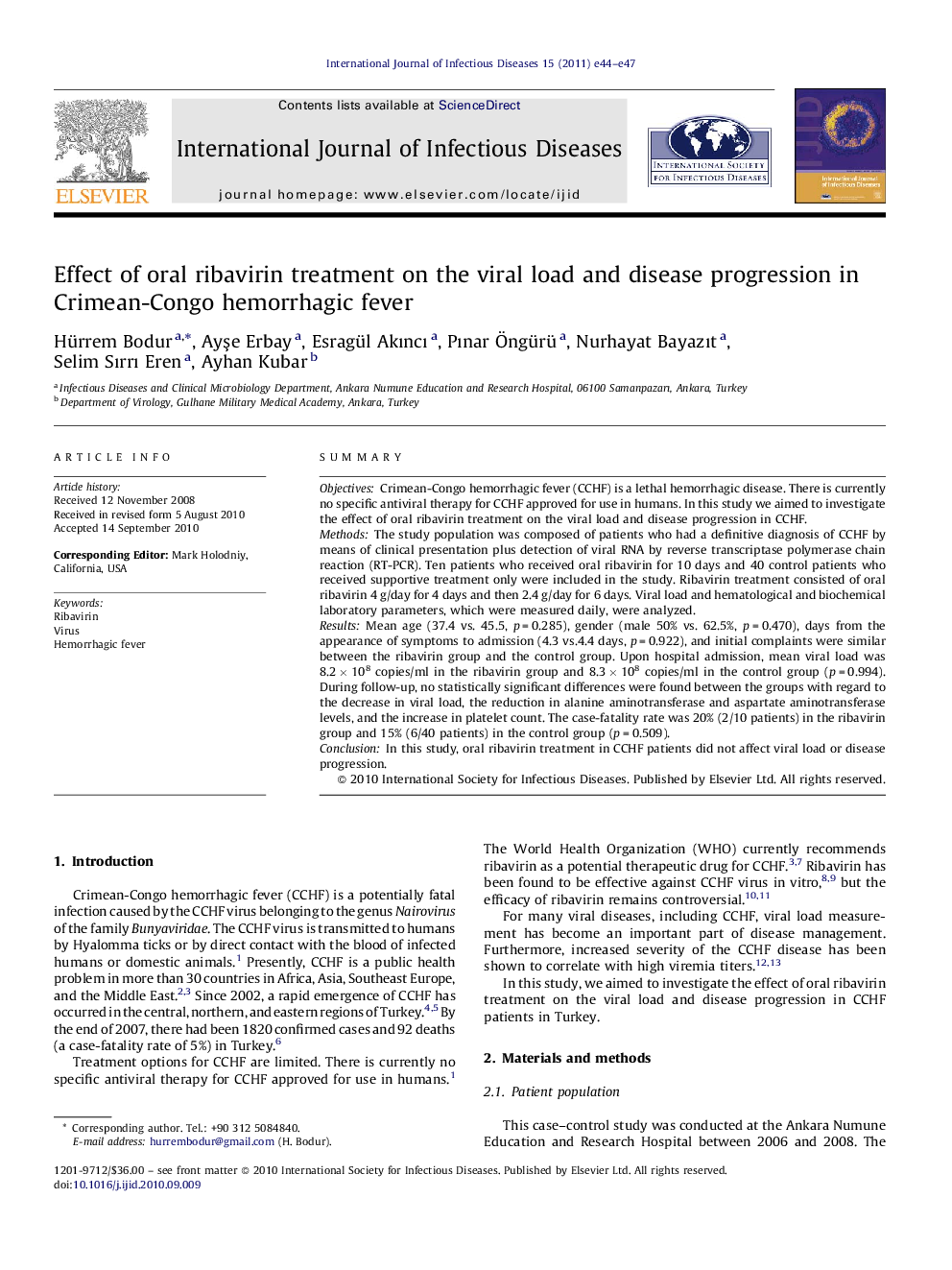| Article ID | Journal | Published Year | Pages | File Type |
|---|---|---|---|---|
| 3363109 | International Journal of Infectious Diseases | 2011 | 4 Pages |
SummaryObjectivesCrimean-Congo hemorrhagic fever (CCHF) is a lethal hemorrhagic disease. There is currently no specific antiviral therapy for CCHF approved for use in humans. In this study we aimed to investigate the effect of oral ribavirin treatment on the viral load and disease progression in CCHF.MethodsThe study population was composed of patients who had a definitive diagnosis of CCHF by means of clinical presentation plus detection of viral RNA by reverse transcriptase polymerase chain reaction (RT-PCR). Ten patients who received oral ribavirin for 10 days and 40 control patients who received supportive treatment only were included in the study. Ribavirin treatment consisted of oral ribavirin 4 g/day for 4 days and then 2.4 g/day for 6 days. Viral load and hematological and biochemical laboratory parameters, which were measured daily, were analyzed.ResultsMean age (37.4 vs. 45.5, p = 0.285), gender (male 50% vs. 62.5%, p = 0.470), days from the appearance of symptoms to admission (4.3 vs.4.4 days, p = 0.922), and initial complaints were similar between the ribavirin group and the control group. Upon hospital admission, mean viral load was 8.2 × 108 copies/ml in the ribavirin group and 8.3 × 108 copies/ml in the control group (p = 0.994). During follow-up, no statistically significant differences were found between the groups with regard to the decrease in viral load, the reduction in alanine aminotransferase and aspartate aminotransferase levels, and the increase in platelet count. The case-fatality rate was 20% (2/10 patients) in the ribavirin group and 15% (6/40 patients) in the control group (p = 0.509).ConclusionIn this study, oral ribavirin treatment in CCHF patients did not affect viral load or disease progression.
